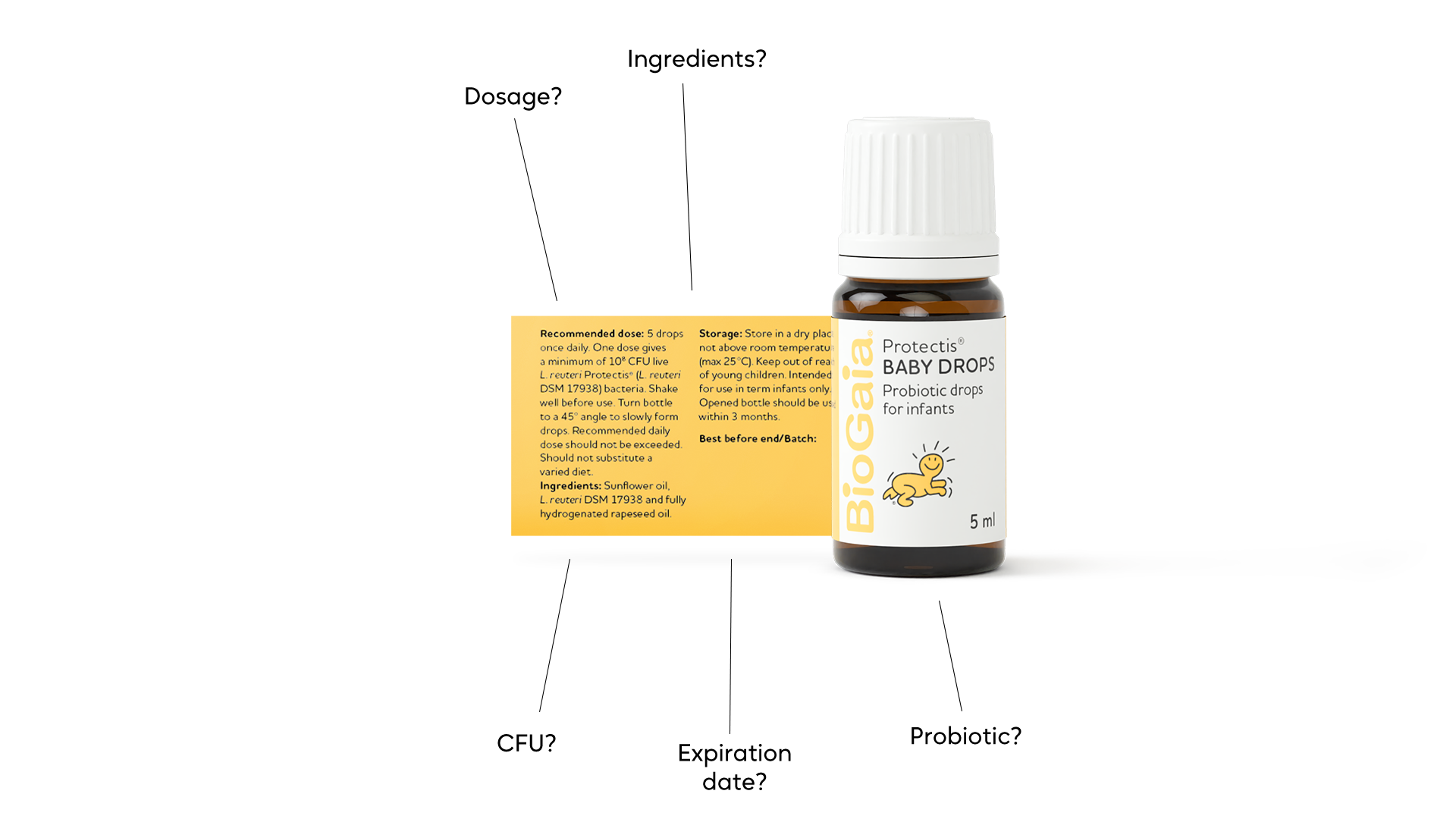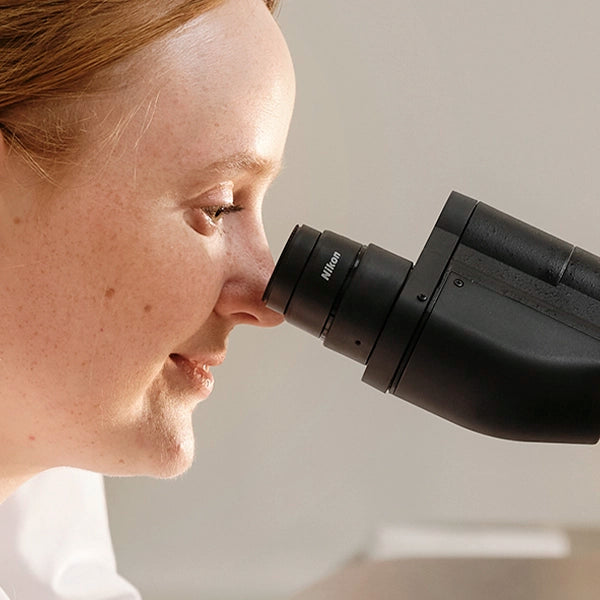What are probiotics?
Your essential guide to our gut heroes


What are probiotics?
Probiotics are live bacteria and yeasts that are found in low amounts in certain foods and in supplements. Many people choose probiotics as part of their daily routine, to support balance in the body.
Probiotics are live bacteria and yeasts often referred to as "friendly" bacteria. These microorganisms help maintain the natural balance of bacteria in your gut.
Learn about probiotics
This information is intended for educational purposes only and should not be considered medical advice.
World leader in probiotics
With 30+ years of research and innovation, BioGaia probiotics offer high-quality, science-driven products that fit easily into daily routines.
Bacteria and gut health
Contrary to the old belief that all bacteria are harmful, we now know that almost all bacteria are generally harmless.
Indeed, some bacteria are actually essential for our survival, while only a small fraction poses a potential threat.
What do probiotics do?
Our bodies are home to a mix of trillions of bacteria. They're pretty much everywhere — the mouth, gut, and skin.
Under normal or "balanced" conditions, friendly bacteria in the gut outnumber the unfriendly ones. However, the effects of a modern lifestyle (stress, antibiotic use, low-fibre diets) mean a ‘balanced’ state is increasingly hard to obtain.
Maintaining a healthy, balanced gut microbiome supports overall wellness, as around 80% of our immune system resides in the gut.

Prebiotics and Probiotics – what's the difference?
Both prebiotics and probiotics support your gut health, but they play different roles.
Prebiotics are commonly fibres that feeds the friendly bacteria in your gut, helping them to grow and thrive. Think of them as food for your friendly gut bacteria.
Probiotics, on the other hand, are live bacteria that you can consume through supplements or in low amounts in certain foods, like yogurt and sauerkraut. They add more of these friendly bacteria to your digestive system.
Together, they help maintain healthy digestive system balance.
What are probiotic foods? If I eat fermented foods, do I need a probiotic?
Probiotic foods, such as yogurt, kefir, sauerkraut, kimchi, and other fermented products, contain live bacteria. However, some are processed further which can kill off the beneficial microbes.
Quality probiotic supplements, in contrast, have guaranteed numbers of live friendly bacteria when consumed in sufficient quantities.
So while fermented foods offer a delicious way to introduce gut-friendly sources into your diet, probiotic supplements provide specific strains with consistent dosages.
Read more about the difference between probiotics and fermented foods

How are probiotics strains named?
Bacteria are classified by genus, species, and strain. Each strain has a unique genetic makeup, resulting in distinct characteristics.
Thus, every strain is different and does different things; each bacterial strain is as unique as you.
That's why just saying "lactic acid bacteria" isn't specific enough. It's important to know the exact strain, like Limosilactobacillus reuteri DSM 17938, to understand what you're getting.
Understanding probiotic strains
Probiotic products may contain one or multiple strains with varying bacteria counts. However, the quality of a probiotic depends on the specific strains it contains. Some strains require a lower amount, while others need more.
To be considered a true probiotic, the probiotic supplement needs to contain the same strains and dose used in research. All BioGaia products fulfil this requirement.
Read more about our probiotic strains
Millions to trillions: Is a bigger CFU count better?
CFU, or "Colony-Forming Units," gives an estimate of how many viable bacteria cells are in each dose, such as a tablet. Although, a higher CFU doesn’t necessarily mean better.
How to read a probiotic label

RECOMMENDED USE: Tells you the intent of the product and what you can expect.
DOSAGE/ USAGE/ SERVING SIZE: The amount that needs to be consumed to obtain the desired effect.
CFU (Colony Forming Units): The number of viable bacteria in the product (sometimes designated as “live cultures”). Avoid products stating CFU “At time of manufacture” - such labelling does not account for decline of CFU during storage. CFU listed is usually a total count, although a count for each strain is desirable. CFU listed on the product label should equal the amount shown in research.
STORAGE INFORMATION: How to store the product to ensure product quality and safety.
COMPANY NAME AND CONTACT INFORMATION: Consumers can contact BioGaia with questions or to get more information.
GENUS, SPECIES, AND STRAIN OF THE BACTERIA: You need all 3 to know what probiotic you are getting. Strain specificity is important as different strains within the same species can do different things. Choose products that identify down to the strain level.
USE BY/EXPORATION DATE: This will tell you how long the probiotic will contain adequate levels of live probiotics to have the desired effect. Probiotics are living microorganisms, and their numbers can drop off during storage.
How to choose the best probiotic for you?
Selecting a probiotic can be more challenging than picking a multivitamin. The complex names of probiotic strains can be confusing and determining which strain suits your specific needs can be tricky.
When considering a probiotic supplement, it's important to ensure that the strain has been tested in research to verify its safety, and that the quantity provided is sufficient.
A quality probiotic should also be capable of temporarily colonising the human gut. This colonisation is what helps restore a healthy balance of friendly and unfriendly bacteria.
All BioGaia products have been shown to reach the gut alive.
International Scientific Association for Probiotics and Prebiotics
As the probiotic industry lacks uniform regulations, particularly regarding efficacy and quality, BioGaia welcomes the International Scientific Association for Probiotics and Prebiotics (ISAPP). ISAPP’s consumer guidelines for making smart choices regarding probiotics.
As proud members of ISAPP, we take pride in offering authentic probiotics, in contrast to other food supplements marketed as such.
| Checklist | How probiotics by BioGaia comply |
|---|---|
| It’s backed by science | ✓ Products with L. reuteri are among the most scientifically well-documented probiotics in the world. |
| It provides an effective dose | ✓ Through research, effective dosing has been verified and varies per product. |
| It provides the benefit I’m seeking | ✓ All BioGaia probiotics are shown to support gut, oral and immune system maintenance. |
| It’s safe for me | ✓ BioGaia strains all have Qualified Presumption of Safety (QPS) status and have undergone rigorous safety assessment, and their use in food is supported by European Food Safety Authority Scientific Panels. |
| It’s labelled properly | ✓ Our labelling always specifies genus, species and strain, shows CFU content at end of shelf-life, specifies recommended dose, specifies storage conditions on the packaging and contact information is visible on all labels. |
IS MORE BETTER? Not necessarily. A greater number of colony forming units (CFU) does not always equate a better product. The best known dose is the one that has been researched and well documented. These levels can range from 100 million to over a trillion CFU per day depending on the strain.
ARE A GREATER NUMBER OF STRAINS BETTER? It depends on the science. Some research supports a single-strain probiotic product. Simply having lots of strains is not a guarantee of a more beneficial product.
DOES STRAIN SPECIFICITY MATTER? Scientists agree that not all probiotics are the same. Choose a strain or strain blend supported by science supporting the function you are looking for.
ARE ALL FERMENTED FOODS PROBIOTIC FOODS? Fermented foods are made by live cultures transforming the food. Some are further processed (such as pasteurisation), which can kill the cultures. Probiotics, on the other hand, are live microbes proven to be beneficial in adequate amounts. Fermented foods can be healthy, but they don't always meet the criteria to be called probiotics unless they contain a researched probiotic at the right dose.
*All information according to the International Scientific Association for Probiotics and Prebiotics (ISAPP).
Our experts answer common questions about probiotics!
Bacteria are classified into genus, species and strains. Probiotic strains of the same species have different characteristics.
Multi-strain products containing several strains in high doses do not necessarily mean better quality than a single-strain product. Important criteria when choosing a probiotic product are:
The probiotic bacteria must be defined on strain level.
The probiotic product must have been researched, with the same dose and with the same bacterial strain(s) as in the commercial product.
The patented probiotic strains found in BioGaia's products were originally found to live in the human digestive tract, which means naturally found in human bacterial flora. Many other probiotic products on the market contain strains that come from plants or animals.
Even if a bacterium can colonise the gut, regular intake is necessary to maintain sufficiently high levels for proper colonisation. This colonisation is often being expelled after around one week, which is why taking probiotics daily, whether from food or supplements, ensures stable levels of probiotics in the gut.
Learn more about probiotics
Sources
Effects of Probiotics, Prebiotics, and Synbiotics on Human Health - PMC (nih.gov)
Markowiak P and Śliżewska K (2017) Effects of Probiotics, Prebiotics, and Synbiotics on Human Health. Nutrients, 9(9): 1021
Effects of Probiotics, Prebiotics, and Synbiotics on Human Health - PMC (nih.gov)
The benefits of probiotics bacteria - Harvard Health
Probiotics - NHS (nhs.uk)
Probiotic-Checklist-Infographic.pdf (isappscience.org)
Probiotic_labeling-_rev1029-1.pdf (isappscience.org)
Dispelling-Probiotic-Myths.pdf (isappscience.org)
This information is intended for educational purposes only and should not be considered medical advice. The article does not imply that any substance mentioned is intended for the diagnosis, cure, treatment, or prevention of any disease.


